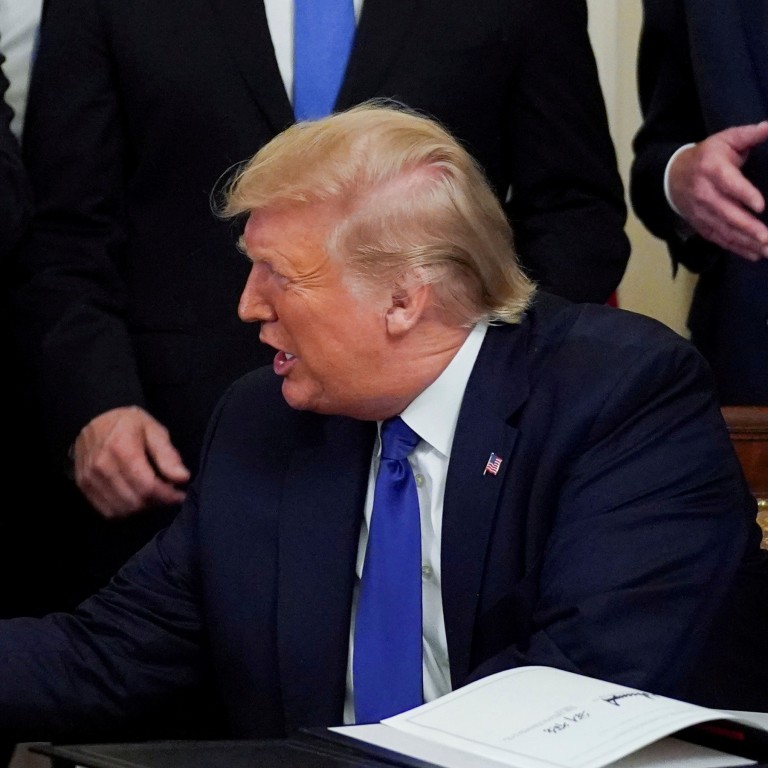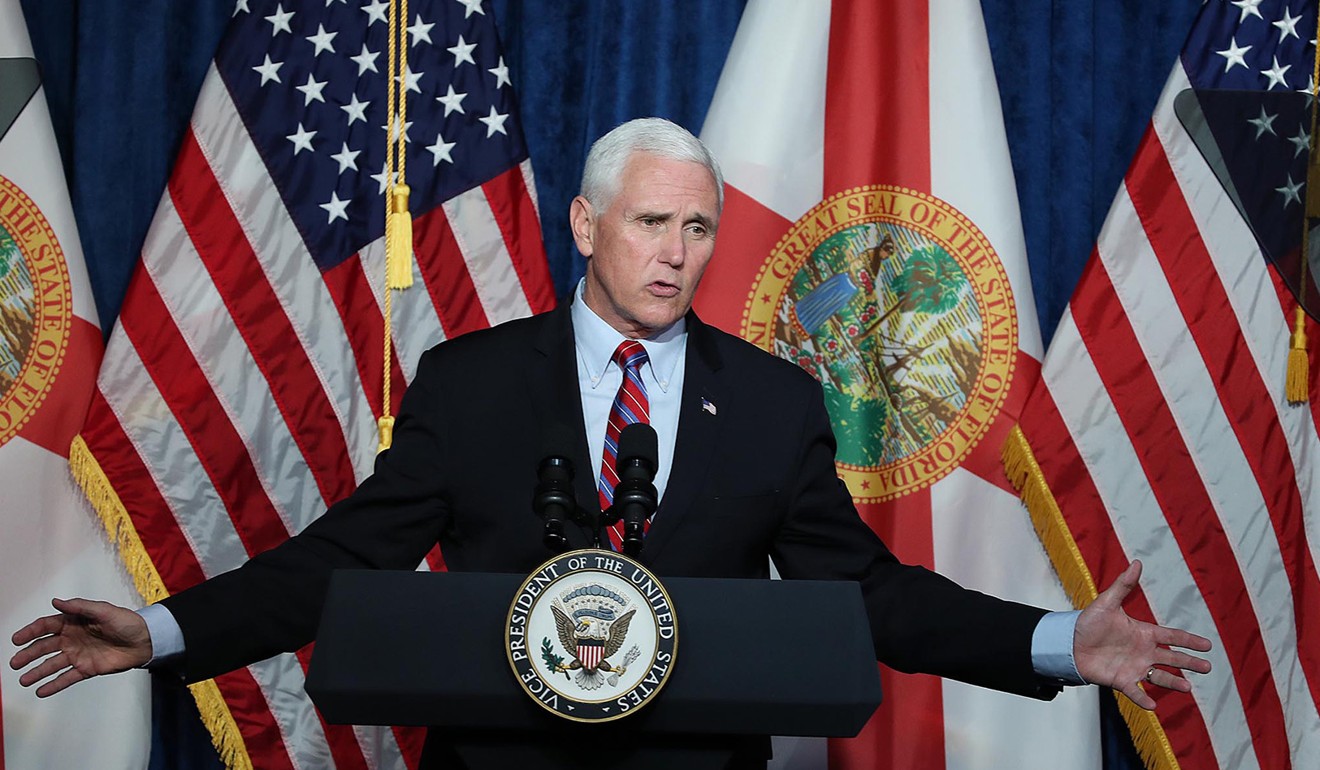
US State department report on Tibet a month overdue, congressional sources say
- Report is required by Reciprocal Access to Tibet Act, which bars US visas to Chinese officials who have restricted diplomats’ access to Tibet
- Report, which names those officials, was due in December, and bipartisan congressional frustration is said to grow
When the Reciprocal Access to Tibet Act became law 13 months ago, it held the Trump administration to a stringent commitment: block any Chinese official who was involved in restricting foreign diplomats’ access to Tibet from stepping foot on American soil.
The administration was also required – one year after the bill’s enactment on December 19, 2018 – to provide the US Congress with a report that included a list of the individuals barred from entering the US or stripped of their visas.
Roughly a month since that deadline came and went, though, lawmakers are still waiting for the report, according to three congressional sources. And bipartisan frustration in both the House of Representatives and the Senate is growing.
In light of what one House aide described as the Trump administration’s “extremely lax” approach to the “letter of the law”, pressure from Congress on the US State Department to produce the Tibet report is happening “on a bicameral and bipartisan basis”.
Beijing claims that the Tibetan autonomous region is open to all foreigners, but the US disputes that.

A State Department report last March found that the Chinese government “systematically impeded travel” for US diplomats, journalists and tourists in 2018, denying five of nine official travel applications from the US diplomatic mission in China – including a request by US Ambassador Terry Branstad.
It is not unprecedented for the executive branch to miss reporting deadlines mandated by Congress, but this delay follows numerous instances of the Trump administration holding off on action pertaining to human rights in China for fear of derailing the US-China trade negotiations.
Those talks reached a milestone this week when US President Donald Trump and Vice-Premier Liu He signed a phase one trade deal in Washington on Wednesday.
Over the past year, the administration has postponed or cancelled speeches critical of Beijing’s human rights record by senior officials, including Vice-President Mike Pence, and delayed a ready-to-go sanctions package against Chinese officials over Beijing’s mass internment of Uygurs and other largely Muslim ethnic minority groups in Xinjiang.
Meanwhile, along with scores of other foreign policy positions in the administration, the State Department’s Special Coordinator for Tibetan Issues post has remained vacant since Trump took office in 2017.

Matteo Mecacci, president of the Washington-based International Campaign for Tibet, said that implementation of the Reciprocal Access to Tibet Act was “an important test for the Trump administration to show they are serious about reciprocity with China beyond the trade deal they just signed and on the issue of human rights.”
The State Department did not respond to multiple requests for comment on the reasons for the delay on the report.
“Technically [missing a legislatively mandated deadline] is breaking the law, but there’s no penalty to it,” said Chris Lu, a former lawyer with the House oversight committee who later managed Barack Obama's cabinet.
Agencies often missed deadlines, Lu said, given the sheer number of reporting requirements that Congress places on the executive branch.
First Xinjiang, then Hong Kong, now US turns human rights attention to Tibet
Yet the problem had been compounded under the current administration, said Lu, especially on national security and foreign policy issues: “This is an administration that doesn’t believe in transparency, that doesn’t necessarily respect the coequal role of Congress.”
Despite the frustrations, it was unlikely that Congress – now fixated on Trump’s impeachment trial – would launch a full-scale oversight effort over the four-week delay, said the House aide, who was not authorised to speak on the record.
“I think the administration has correctly ascertained that we have bigger fish to fry right now,” the aide said, adding that even so, “we can squawk about it, and we have been”.
Publishing a list of Chinese officials denied – or stripped of – US visas just as a high-level trade delegation led by Liu was in Washington to sign the trade deal would be a source of certain embarrassment for Beijing, which has fumed at previous efforts by Washington to restrict its officials’ travels to the US.
When the State Department imposed visa restrictions in October on unnamed Chinese officials deemed responsible for or complicit in the detentions in Xinjiang, for instance, Beijing howled. The move, a foreign ministry spokesman charged, was a “grave violation of basic norms governing international relations and a flagrant interference in China's internal affairs”.
From Tibet to Xinjiang, Chen Quanguo is the prime target of US sanctions
Such flare-ups may be avoided this time, however, should the Trump administration choose to invoke waivers for the visa restrictions on Chinese officials over Tibet – as permitted by the legislation in cases where “national interest” is at stake.
It is also possible that the department has been unable to identify officials responsible for restricting access to Tibet, in which case the report would have no list of sanctioned individuals.
“We don’t know what’s going to be in [the report], or how specific it is,” said one Democratic House staffer. “Obviously we want it to be a strong report.”
The report’s impact on the US-China relationship will also depend on how much of its substance the four receiving Congressional committees – the House’s foreign affairs and judiciary committees and their counterparts in the Senate – decide to publish.
According to a congressional source, the committees, once they receive the report, would pass it to the Congressional-Executive Commission on China (CCEC), an influential panel whose members and staffers have been behind several recent legislative efforts to bolster the Trump administration’s focus on human rights in China.
US commission says it ‘essential’ for Trump to express support for human rights in China
In December, the House foreign affairs committee approved legislation introduced by the CECC’s co-chairs that, like the Reciprocal Access to Tibet Act, also takes a tit-for-tat approach to codifying Washington’s Tibetan policy.
Among other things, the Tibetan Policy and Support Act directs the administration not to authorise any additional Chinese consulates on US soil until Beijing allows Washington to establish its own diplomatic station in Tibet.

